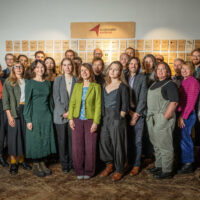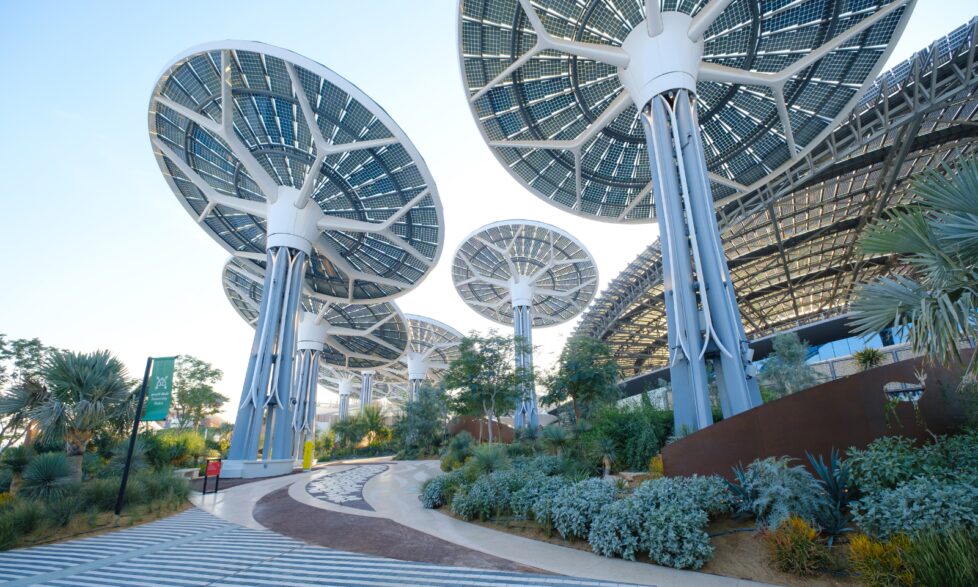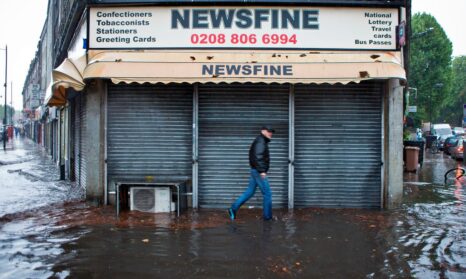COP28: where it’s being held, when it is, and what to expect
COP28 opens today with the need to accelerate global decarbonisation greater than ever before. One striking juxtaposition defines the mood around the opening of the summit – while the UN warns that the planet is on track for a “hellish” 3°C of “global boiling”, it is alleged that COP hosts the United Arab Emirates (UAE) planned to use the conference to broker new deals on oil and gas, something that Dr Sultan Al Jaber, the COP28 President and CEO of national oil and gas company, ADNOC, has denied.
In a letter to the Parties, the COP President announced that the Conference will be framed around four key “paradigm shifts”. In less abstract terms, for COP28 to be deemed a success, it will need to achieve the following:
- A global agreement to phase out fossil fuel production – a call that is now backed by 200 organisations
- An agreement to get major fossil fuel economies on track to cut carbon emissions by 45% by 2030
- Effective climate finance – ideally in the form of grants rather than loans - must be delivered from rich to poor countries, with a focus on enabling climate adaptation
- An agreement on how the loss and damage fund – set up at COP27 to support the poorest countries that are already suffering catastrophic impacts of climate breakdown - will be filled
- An agreement to accelerate nature recovery while giving Indigenous Peoples and local communities a voice and a role
The biggest event at COP28 is the conclusion of the first global stocktake (GST), where the world’s progress against the Paris Agreement’s goals to limit global heating to 1.5°C by the end of the century will be assessed. The UN Environment Programme’s (UNEP) 2023 Emissions Gap Report shows the global average temperature is set to rise between 2.5-2.9°C by the end of the century, a far cry from the Paris Agreement goals.
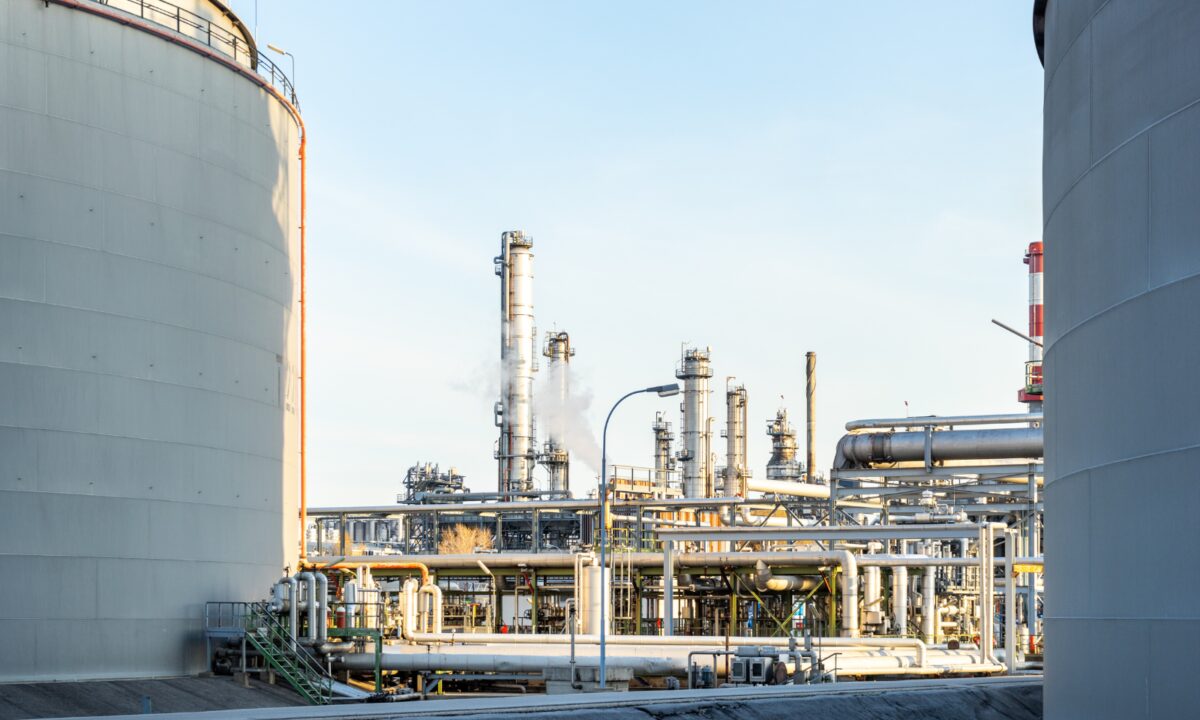
In our advice to clients, we set out the key issues and events below that will define this year’s conference.

COP27 left a sour taste in the mouth for many after, for the second year in a row, a resolution to phase out fossil fuels was not reached. Fossil fuel phase-out is due to be discussed again at COP28. The positives of COP27 included the recognition of the need for nature-based solutions, the creation of a loss and damage fund, climate financing for adaptation and resilience, and looking forward to transforming our financial system for a net-zero future. We can expect these to be topics of conversation again at COP28.
From the UK, King Charles, Prime Minister Rishi Sunak, climate minister Graham Stuart MP, and First Minister of Scotland Humza Yousaf MSP are confirmed to attend. Chris Skidmore (Conservative MP and author of the Government’s recent net-zero review) will also be speaking.
Many companies are attending COP28, including Barclays, PWC, H&M Group, Microsoft, Jacobs, Accenture, UNFCCC, Bloomberg, The World Bank, Cisco, HSBC and KPMG. Through the We Mean Business Coalition, more than 200 companies making up almost $1 trillion in global turnover have come together to urge governing bodies, financial entities, and fossil fuel producers to accelerate the clean energy transition. The UK Green Building Council (UKGBC) will have representatives in attendance, and will use the summit as a platform to present the UK’s sustainable built environment as a global leader, despite the recent backtracking of green policies by the government.
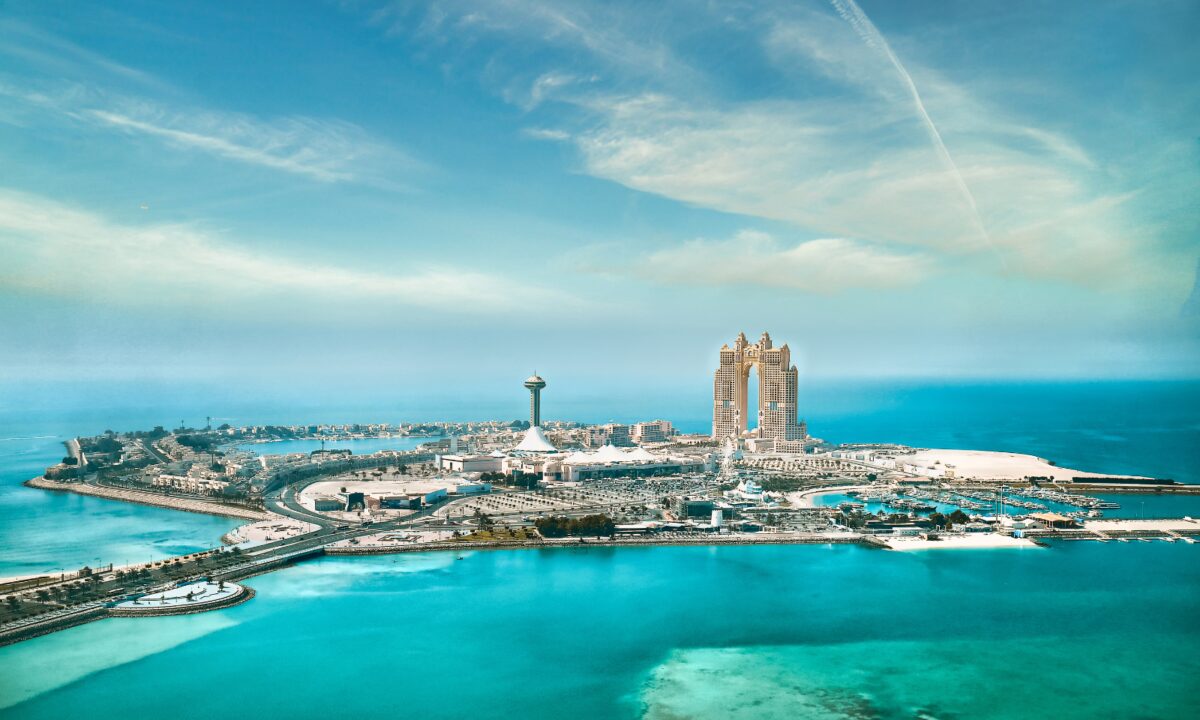
First global stocktake (GST)
During COP27, CO2 emissions were projected to increase by 10% by 2030, far short of the 45-50% decrease needed to limit heating by 1.5° C by 2030. The GST will assess global progress towards the Paris Agreement goals and determine how far short our reduction efforts are. The findings from this GST will be the foundation for new 2035 nationally determined contributions (NDCs), which countries will prepare ahead of COP30 in 2025. In June 2023, the UK’s Climate Change Committee (CCC) submitted a progress report to Parliament showing that the UK was not on track to meet its current NDCs – a 68% reduction by 2030 compared to 1990. The CCC estimated that the UK’s 2035 NDCs should be a 78% reduction target by 2035 compared to 1990, including international aviation and shipping.

Fast track energy transition and slashing emissions before 2030
To limit global heating to 1.5° C by 2030, renewable energy capacity needs to be tripled, and oil and gas scope 1 and 2 emissions need to be halved. At COP28, this transition will be discussed through topics such as phasing down fossil fuels, strengthening policy, engaging with decision-makers in the public and private energy sectors, engaging with scientists, and looking at the energy sector holistically. Mitigation pathways discussed at COP28 will include carbon markets and non-market approaches.

Finance for climate action
Achieving the goals of the Paris Agreement requires an annual investment of USD $2.4 trillion for emerging and developing countries. COP28 is calling for developed countries to pledge to the Green Climate Fund (GCF), which needs replenishment. During COP26, developed countries pledged to double their adaptation finance by 2025, and these pledges will be revisited at COP28. A new financial framework is set to be unveiled, designed to deliver the net-zero transition inclusively for all countries and communities.

People, nature and climate action
COP28 is framing discussions around collaborative action on adaption, preserving ecosystems, climate-proof food systems, and protecting those most vulnerable to the effects of climate breakdown. The conversation on the loss and damage fund will continue after discussions around financing and claims eligibility were not concluded at COP27. An outcome for the loss and damage fund is rightly a very high priority for COP28.
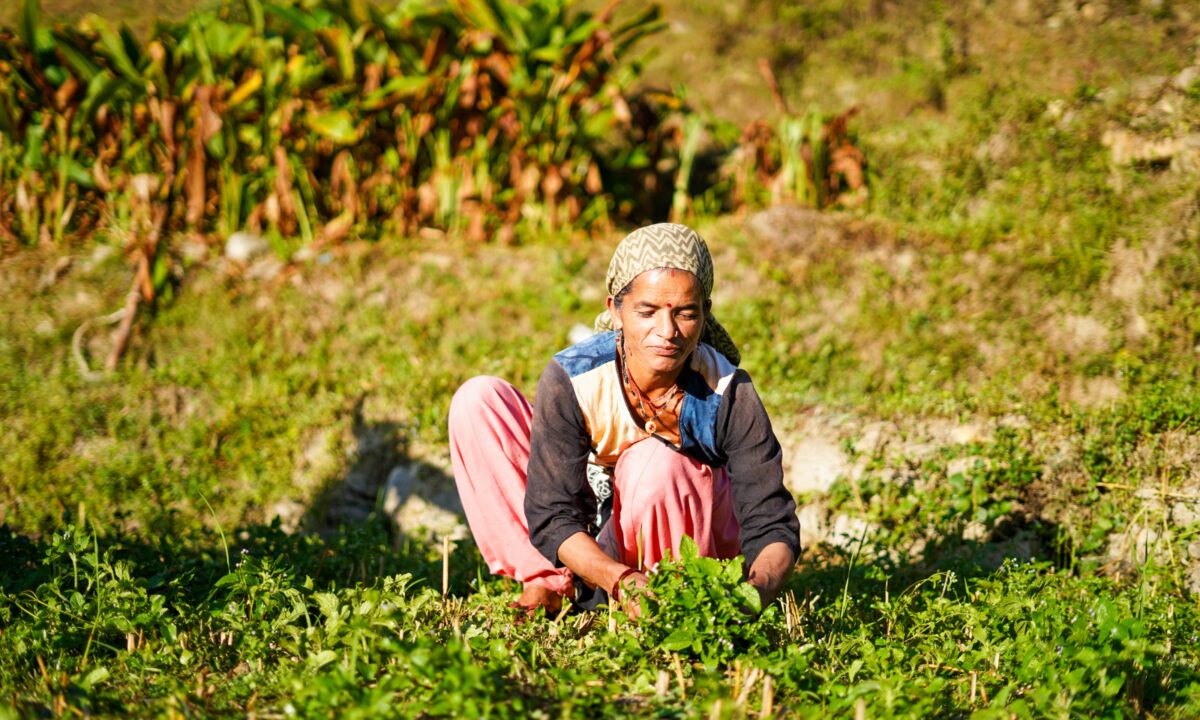
Inclusivity
Dr Sultan Ahmed Al Jaber has emphasised the importance of inclusive conversations at COP28. This involves including youth, indigenous communities, sub-national actors, faith-based organisations, and gender-balanced delegations. Through programmes such as the International Youth Delegates Program, 100 young people from small island developing states and least developed countries will be included in COP28 discussions.
Over the two weeks of COP28, which runs from 30 Nov – 12 Dec, the schedule is broken down into themed days. December 6 focuses on Multilevel Action, Urbanisation and Built Environment/Transport, and key events include:
- The role of sustainability in future cities
- Transformative cities: Local action for global impact
- Scaling up finance for sustainable urbanisation
- Building climate resilient infrastructure
- A blueprint for decarbonising the built environment
- Cities as beta-sites of innovation/building our urban sustainability
Other themed days include:
- 1 & 2 December: World Climate Action Summit
- 3 December: Health / Relief, Recovery and Peace
- 4 December: Finance / Trade / Gender Equality / Accountability
- 5 December: Energy and Industry / Just Transition / Indigenous Peoples
- 8 December: Youth, Children, Education and Skills
- 9 December: Nature, Land Use, and Oceans
- 10 December: Food, Agriculture and Water
All COP28 side events will be available to watch live and on-demand on the official UN Climate Change YouTube channel.
The world is watching
Following the disappointments of the last conference, the eyes of the world – in particular, those impacted most by the climate and ecological emergency – are trained on COP28 like never before. For it to be judged a success in 12 days’ time, we must witness genuine paradigm shifts in the right direction.

